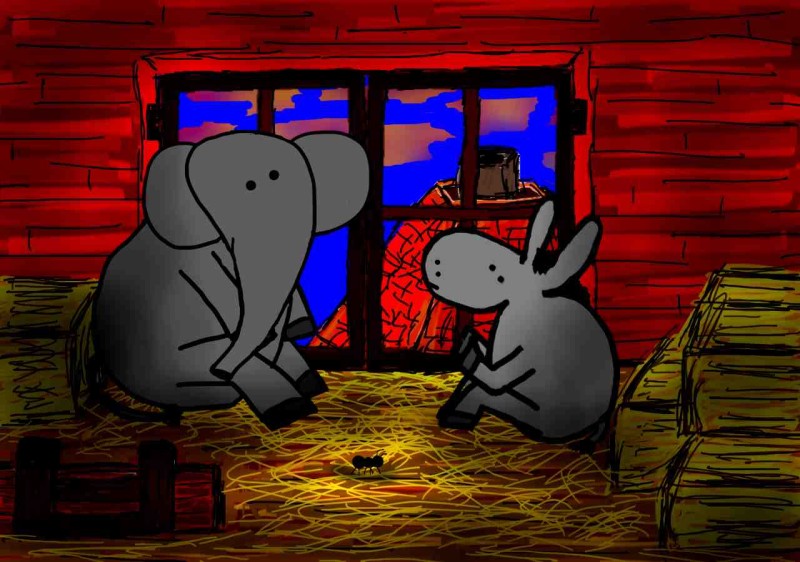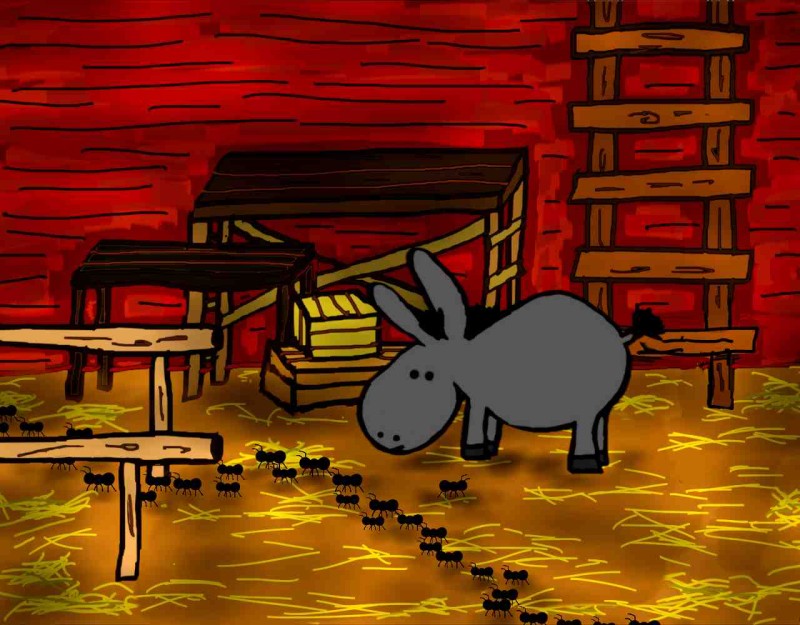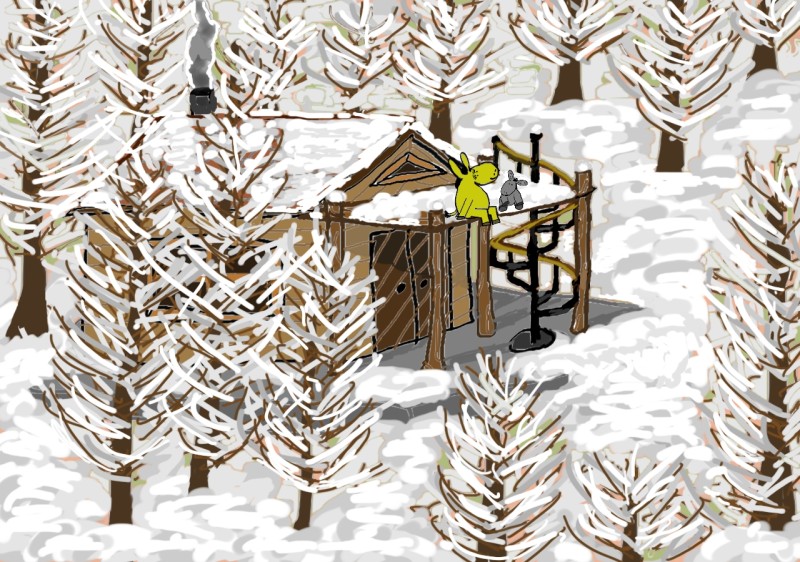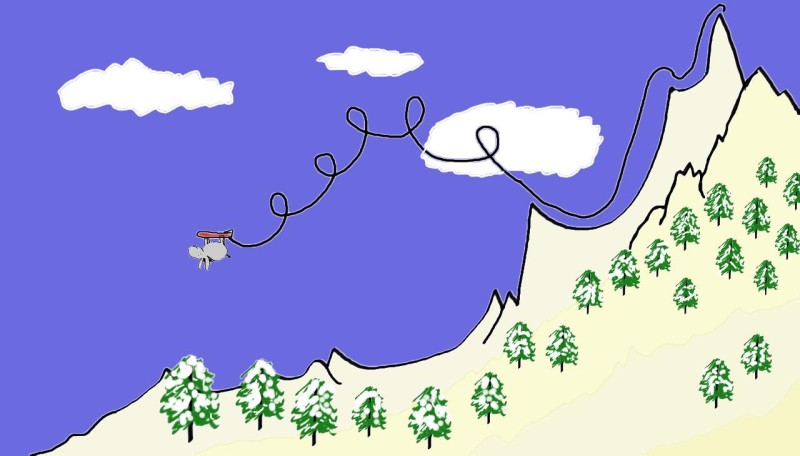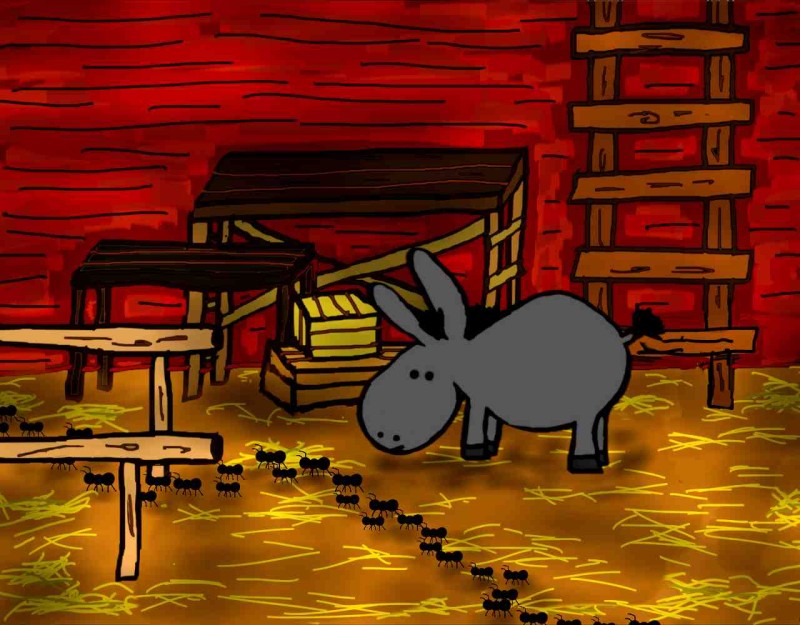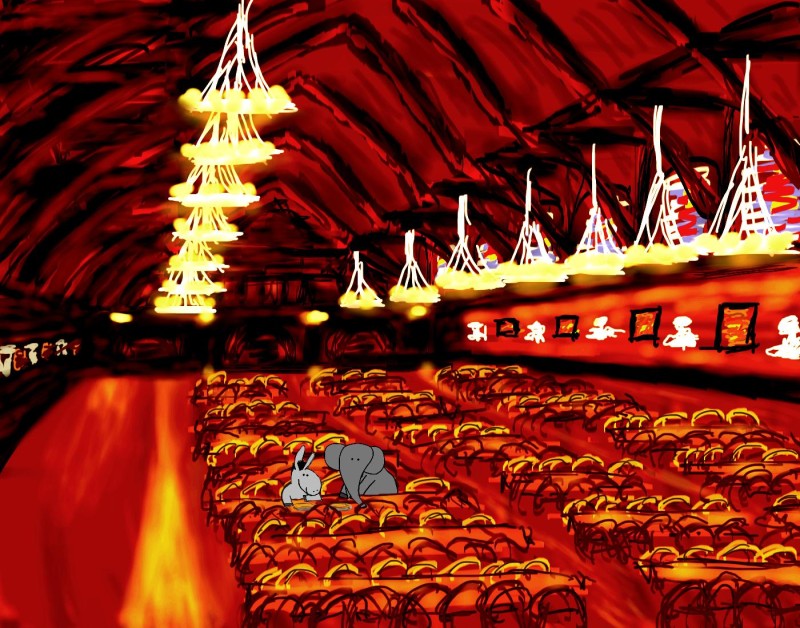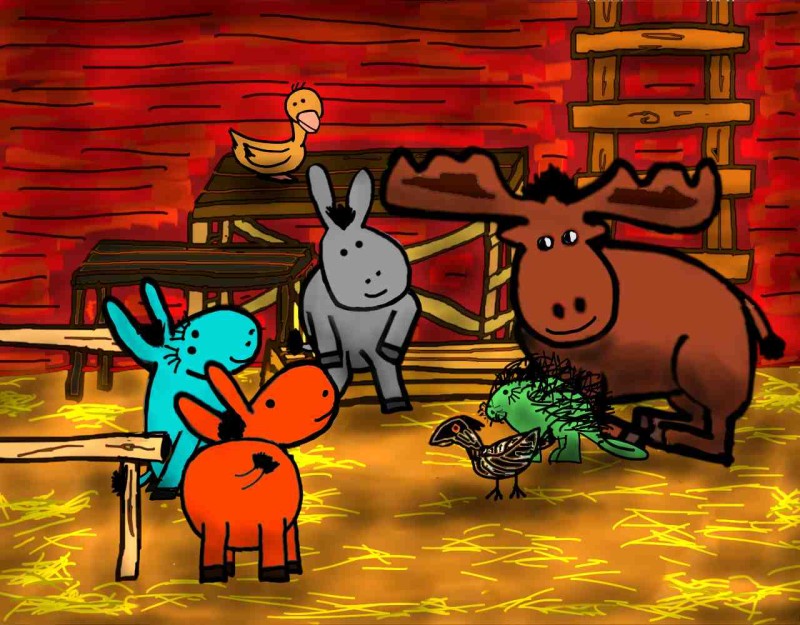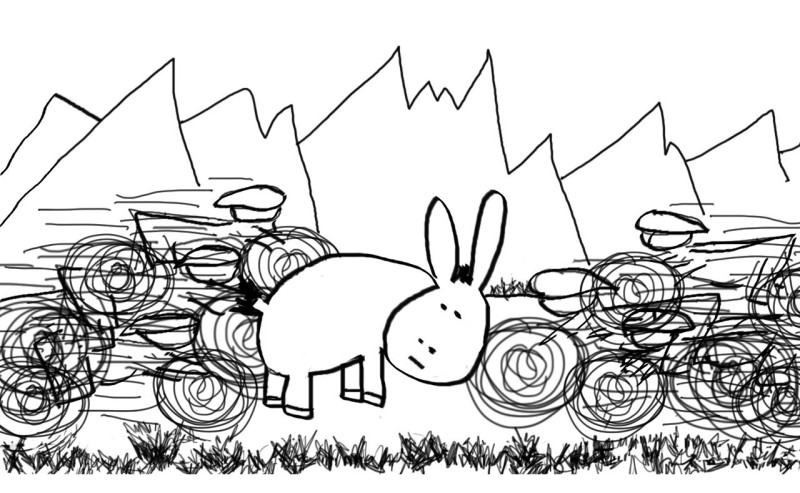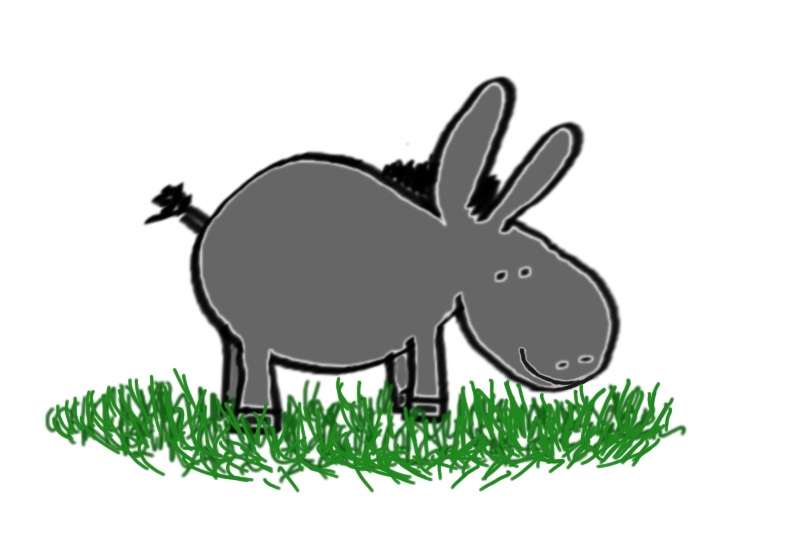Oh, oh, said Blurtso, do you see that? Yes, said Harlan. What are we going to do? said Blurtso. I don’t mind a single ant, said Harlan, but when you’re surrounded by hundreds or thousands, they become unpleasant. Do you think he’ll tell his friends about the loft? said Blurtso. I don’t know, said Harlan. Maybe he’s a hermit ant, said Blurtso. A hermit ant? said Harlan. Yes, said Blurtso, an ant who rejects the frenetic pace of contemporary ant traditions and ant society, and goes off on his own to contemplate nature and his relationship to the cosmos. Or maybe, said Harlan, he’s a scout ant.
Tag: photos
“Blurtso sees an ant” (VI)
“Bonny and Ditto share some quality time” (X)
“Blurtso steps on a snowboard”
“Blurtso sees an ant” (IV)
I wonder if ants worry about the environment? I wonder what they think of global warming? If I were an ant I would want to do something, but they act like they don’t even care. Maybe they don’t take themselves as seriously as we do. Maybe for them this world is just a testing ground, and they’ll all get their reward in heaven. I wonder what an ant has to do to get into heaven? I wonder what heaven is for an ant? Maybe it’s warm barn with plenty of food. That’s what it is for me. And since a warm barn with plenty of food always has a number of ants, and usually a donkey or two, then I’m a part of their heaven and they’re a part of mine. Maybe heaven is not a place at all. Maybe it’s a relationship.
“Blurtso and Harlan give thanks”
“Weohryant University” (XXIII)
The question for today’s class, said Blurtso, is: “What does two plus two equal?”
Two whats, said Morton, plus two whats?
Two cats, said Frank, plus two dogs?
I believe, said Glouster, it means the number two plus the number two, which equals four.
Four whats? said Morton.
Four of the same, said Glouster.
Is it possible to have four of the same? said Emma Lou.
What do you mean? said Morton.
Are any two things, said Emma Lou, exactly alike?
No, said Glouster, they’re not, but the number two plus the number two equals the number four because numbers are a human invention, they only exist in imagination.
So two pumpkin pies, said Morton, are not two pumpkin pies?
The name “pumpkin pie”, said Emma Lou, is an invention that refers to the “idea” of a pumpkin pie—words and numbers are ideas. There are no individual things in the universe.
What? said Chelsea.
There are no individual things, said Emma Lou.
What about me? said Morton. I’m an individual thing.
So am I, said Chelsea.
At the subatomic level, said Emma Lou, there is only the ebb and flow of energy.
E=mc², said Glouster.
Exactly, said Emma Lou.
I’m not good at math, said Chelsea.
Neither am I, said Morton.
E=mc², said Glouster, suggests that a physical system (like the universe) has a property called energy and a corresponding property called mass; the two properties are equivalent in that they are always present in the same proportion to one another. The mass–energy equivalence arose from the theory of special relativity, developed by Albert Einstein, who proposed the idea in a 1905 paper entitled, “Does the inertia of an object depend upon its energy-content?” In the equation E=mc², “E” is the amount of energy, “m” is the amount of mass, and “c” is the speed of light.
The speed of light, said Morton, is 186,000 miles per second.
Very good! said Emma Lou.
Thank you, said Morton, I remembered when Glouster told us last week.
Donkeys, said Chelsea, have very good memories.
Yes, said Morton, we do.
So what’s the point? said Frank.
The point, said Emma Lou, is that you can describe everything in the universe as either energy or mass. And if mass is energy, then everything is in a constant state of flux.
Flux? said Frank.
“Flux,” said Glouster, “is the process of flowing, the process of continual change.”
And that’s why, said Emma Lou, there are no individual things in the universe, because everything is a constant flow of changing energy.
Like a river? said Chelsea.
Yes, said Emma Lou, a river of energy.
And words and numbers, said Glouster, are inventions we use to chop the river into separate parts.
But those parts, said Emma Lou, are not really separate.
If they’re not really separate, said Morton, why do we pretend they are?
Perhaps, said Emma Lou, because we’re uncomfortable with change, and like to believe that individual, unchanging things exist.
Like individual pumpkin pies? said Morton.
Yes, said Emma Lou, and individual donkeys, crows, ducks, porcupines, and mooses.
If everything is a river of energy, said Frank, and we are all just fluctuations of a single stream, does that mean that two plus two equals one?
Yes, said Enma Lou, and it also means that Einstein, the Upanishads, and the Tao Te Ching are talking about the same thing.
